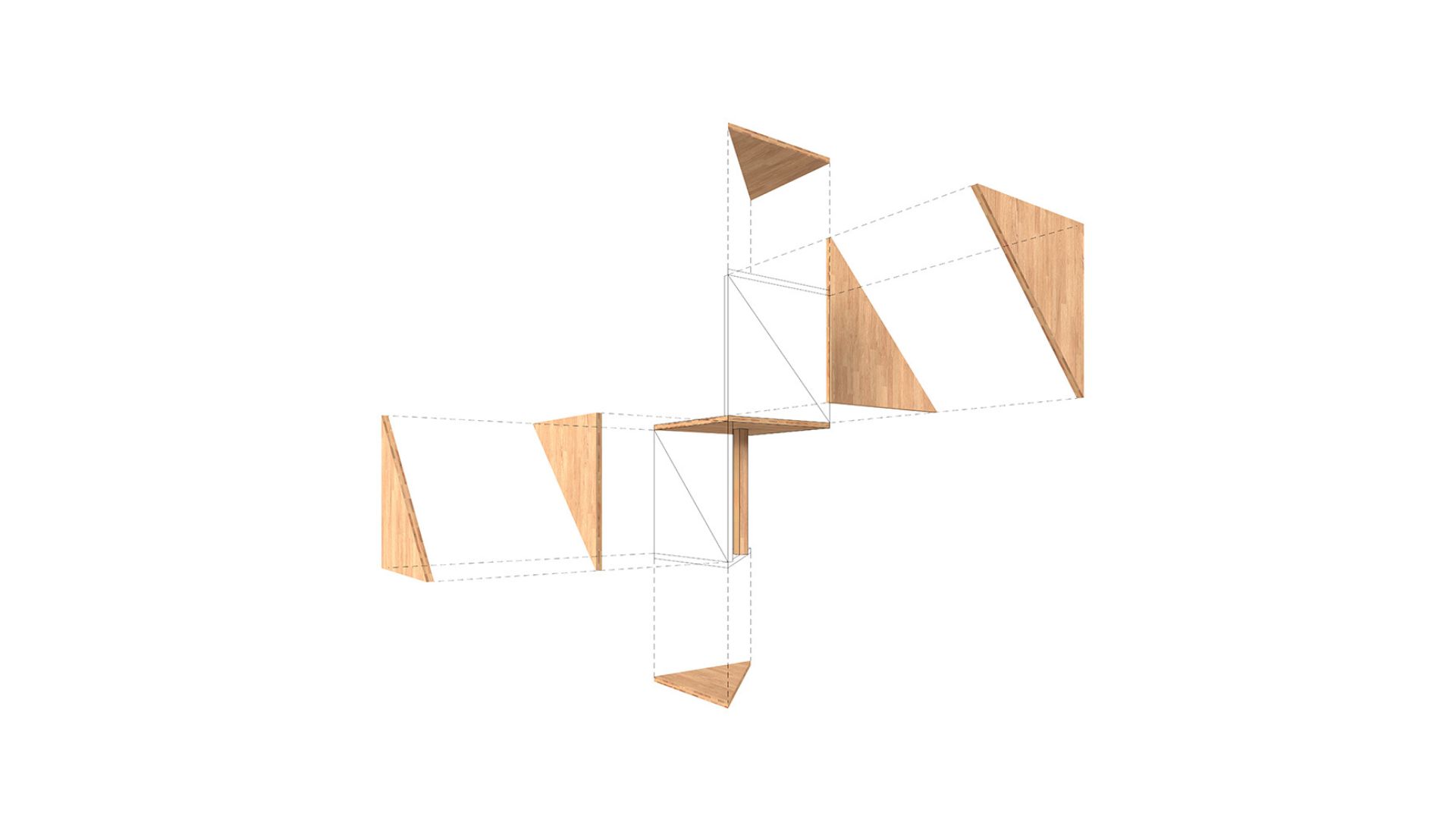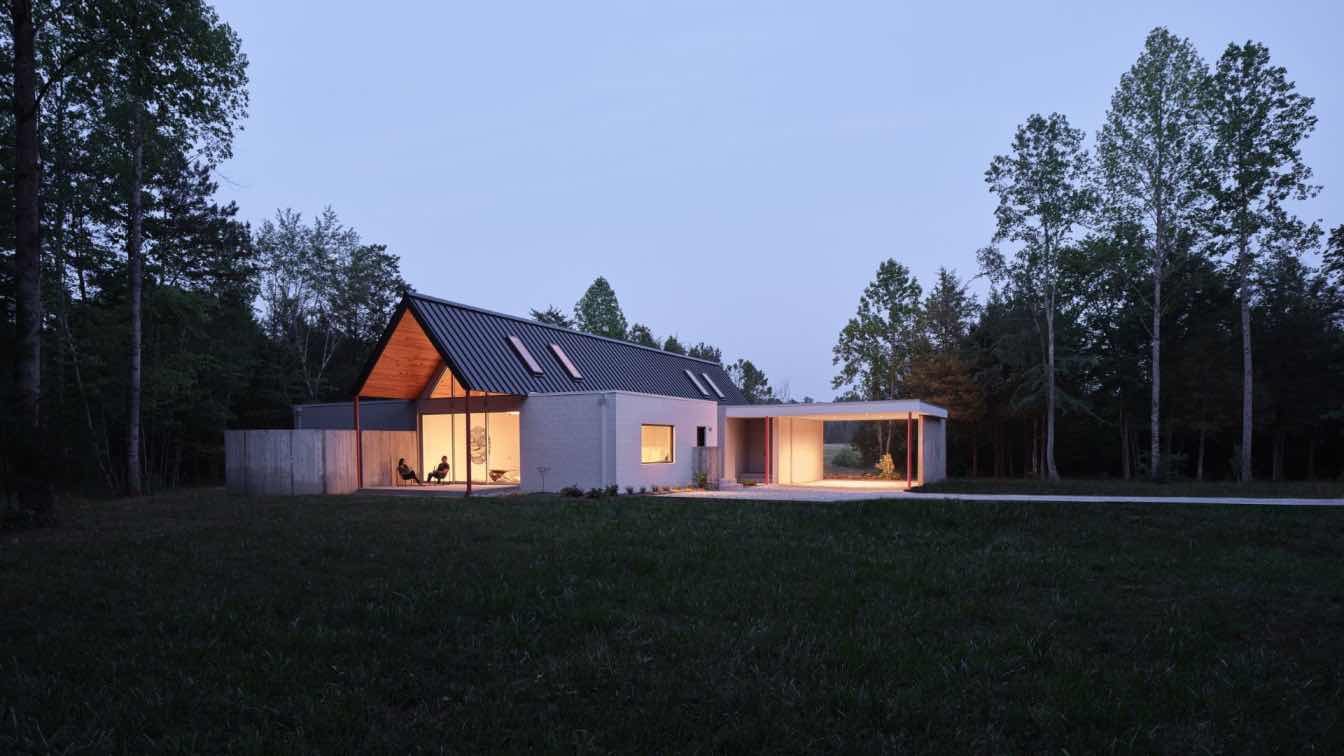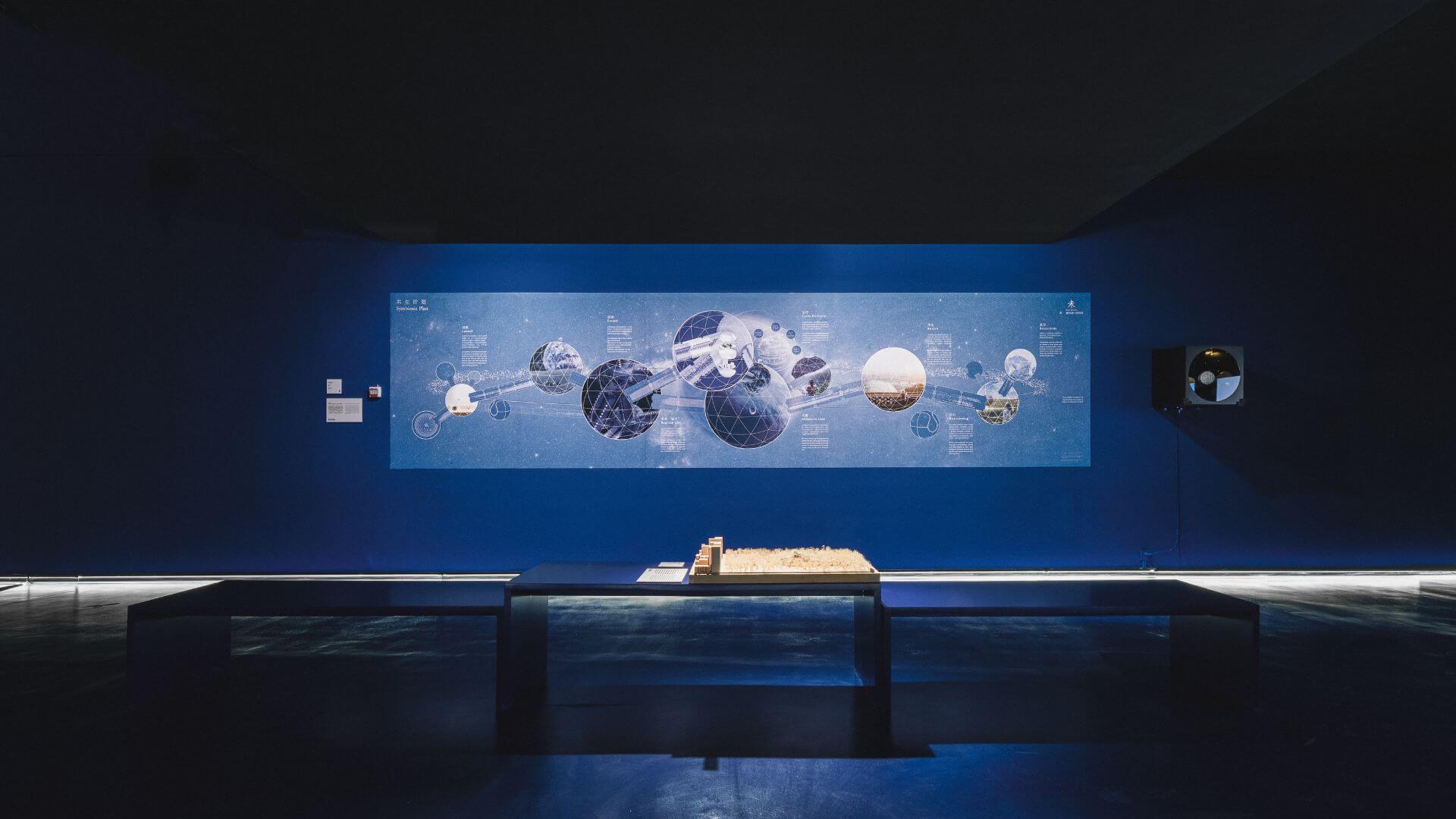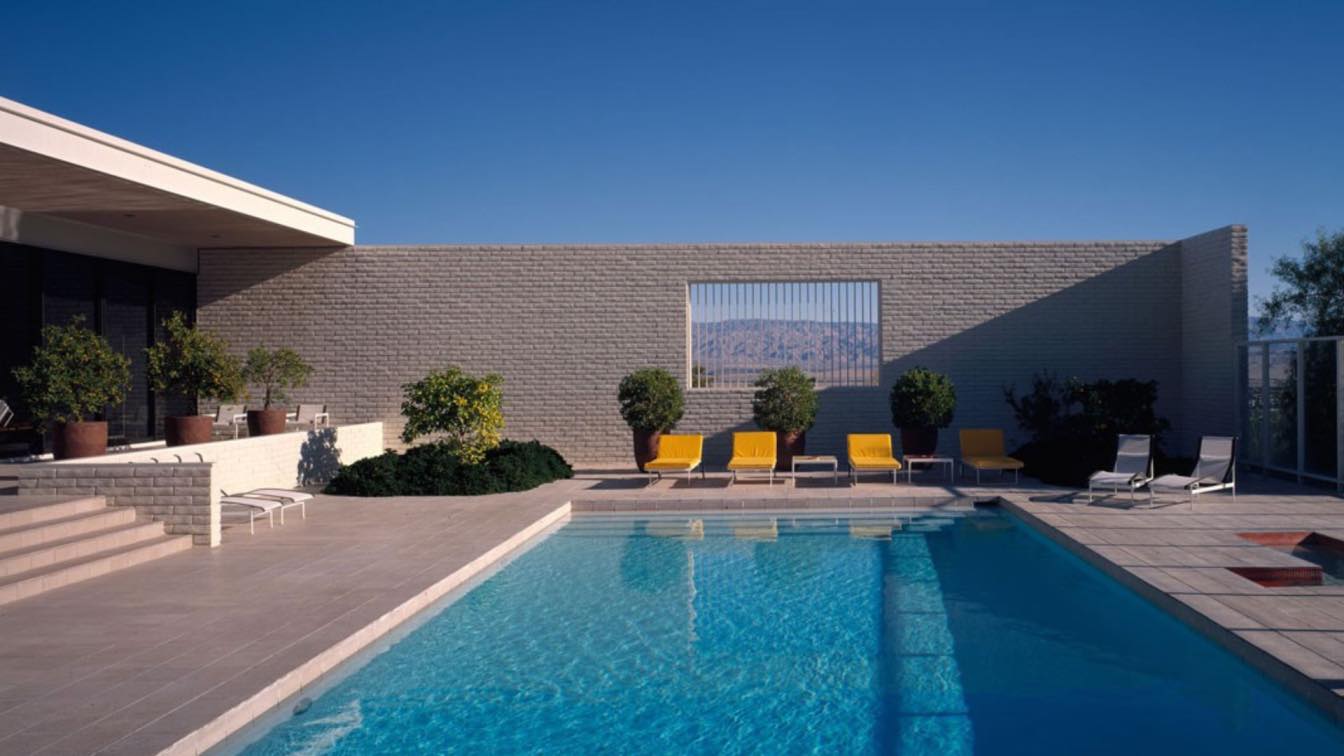SCI-Arc is proud to present Maison de Cartes, or House of Cards, an exhibition by Gordon Kipping (M.Arch ’95) opening with a reception in the SCI-Arc Gallery on April 12 at 6pm.
Maison de Cartes proposes a module of construction for the crisis of our time: climate change. This module of construction is in the spirit of Les Maisons Dom-ino, however, using mass timber as the structure or backbone for the construction. Instead of columns supporting slabs and a stair, Maison de Cartes proposes a stacking of cross-laminated timber walls and floor slabs in combination with glue-laminated columns and beams which support a ramp to ensure universal accessibility.
Wood has emerged as a more sustainable alternative to concrete and steel for the structure of buildings. Wood is renewable and through properly managed reforestation represents an endless resource. Through the process of photosynthesis, trees capture carbon dioxide and release oxygen which operate to counter climate change. While wood eventually needs to be transported and milled, its impacts during the growing and harvesting phase are relatively low compared with concrete and steel which are made from substances that must be mined and heated to extremely high temperatures.
For the exhibition, a fragment of the Maison de Cartes is constructed in the exhibition space, complete with the expression of fragility and impossible balance. Through the use of an augmented reality application available to your smartphone, the fragment is extended on your screen with wireframe linework to compose the whole. As one moves through the exhibition space with the augmented reality application, real-time/real-space perception of the fragment is augmented with the completion of a representation of the Maison de Cartes.
To demonstrate its mutability, Maison de Cartes is taken through a geometric progression to become the Hocken House, a residential project currently under development by Gordon Kipping Architects in Toronto, Canada. The Maison de Cartes fragment is to have a second life and support another crisis. The mass timber fragment upon disassembly is reassembled into a cube which is redeployed to provide emergency transitional shelter on an encampment site of the unhoused.
Maison de Cartes opens with a reception on Friday, April 12 at 6pm and runs through June 2 in the SCI-Arc Gallery.
Gordon Kipping is a native of Toronto, Canada who has been living and working in New York City since 1995. Upon completing a Bachelor of Applied Science degree in engineering in 1989 at the University of Toronto, Kipping worked as a mechanical engineer in building services, eventually attaining licensure as a Professional Engineer in 1993. In 1991, he returned to school to study architecture at SCI-Arc where he received a Master of Architecture degree in 1995. Kipping has worked for the offices of Philip Johnson, Greg Lynn, I. M. Pei and Davis Brody Bond. Currently, he is an Instructor at SCI-Arc and an Adjunct Associate Professor at the Graduate School of Architecture, Planning and Preservation at Columbia University, a position he has held since 2000. Since 1999, Kipping has been principal of Gordon Kipping Architects, focusing on research and projects for a number of institutions, corporations, government agencies, and private individuals.
About SCI-Arc
Located in downtown Los Angeles, SCI-Arc is a world-renowned center of innovation and one of the nation’s few independent architecture schools, offering undergraduate, graduate, and postgraduate programs. We are dedicated to educating architects who will imagine and shape the future.
The school is located in a quarter-mile-long former freight depot in the Arts District of Los Angeles. It is distinguished by the vibrant atmosphere of its studios, which provide students with a uniquely inspiring environment in which to study architecture and design.
An integral part of the emerging cultural hub of a city with a tradition of architectural experimentation, SCI-Arc is devoted to finding radically new responses to the real needs and aspirations of today’s world.
SCI-Arc offers students a unique experience as they pursue their degrees. Our approximately 500 students and 80 faculty members—most of the latter practicing architects—work together in a fluid, nonhierarchical manner to rethink assumptions, create, explore, and test the limits of architecture.





